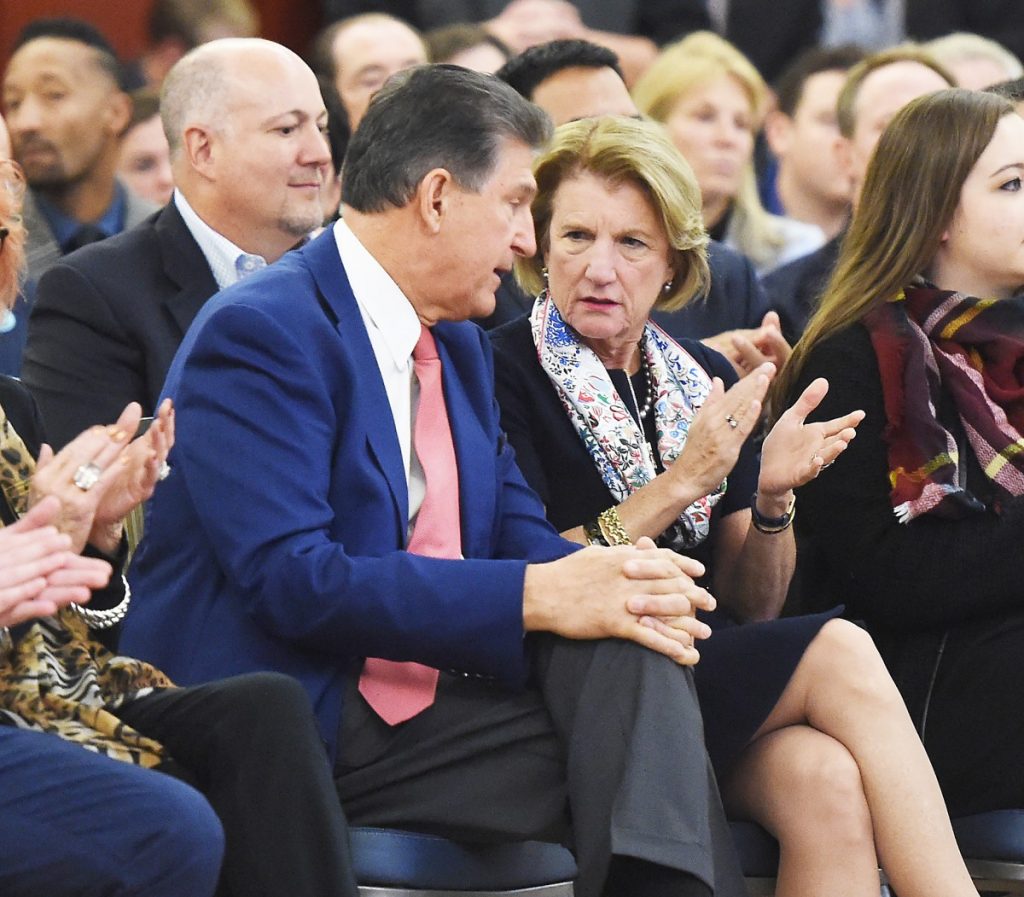MORGANTOWN — Sen. Joe Manchin, D-W.V.a., said he’ll vote no on the process to move ahead before the election with consideration of President Trump’s Supreme Court nominee. “I’m not going to further divide our country.”
Waiting until after the inauguration next year would be even better, he said. He appealed to history to back his position during a Wednesday press conference, citing information from the Congressional Research Service, an agency within the Library of Congress.
Since 1789, he said, 13 Supreme Court seats have gone vacant in election years. Nine of those arose during the first six months, and from those, seven nominees were confirmed. The exceptions were in 1844 and then in 2016 – when President Obama named Merrick Garland.
The current controversy swirls around replacing Justice Ruth Bader Ginsburg, who died Friday, just over a month before the election.

Just four of the nine prior vacancies occurred after July 1, Manchin said. In three, the president put forth no nominee. They were John Quincy Adams, Abraham Lincoln and Dwight Eisenhower. Millard Fillmore put forth a nominee but the Senate tabled action on it.
With just 40-plus days to go, Manchin said, “Why do you want to throw so many flames on a burning country? … That’s politics at it worst. The tribes really have a reason to be in a tribal mode.”
really shouldn’t be done till inauguration of new president.
Manchin emphasized he’s not bound to the party line. He said he’s voted for voted for 161 Trump judicial nominees based on their qualifications, and against only 22, based on their lack.
Trump has said he’ll choose a successor for Ginsburg by Saturday and Majority Leader Mitch McConnell said he’ll move forward with a vote – though he hasn’t specified a time so far. News reports say former GOP presidential candidate and frequent Trump opponent Sen, Mitch Romney is on board with the vote, virtually assuring approval of the nominee.
The votes to move forward with consideration of the nominee and ultimate approval of the nominee both require just simple majorities and the GOP has to votes so Manchin knows his stand can’t stop the process. But he hopes the Senate will undertake a thorough and proper vetting of whoever is named.
Trump opponent Sen. Joe Biden has been coy about who he would name if he defeats Trump; Manchin said Garland should be Biden’s first choice.
The current controversy has hovered around the process – should Trump name someone now or should he wait, in case he loses, and give Biden the choice. In 2106, the GOP-led Senate took no action on Garland while it awaited the election results, allowing Trump the choice.
But The Dominion Post mentioned that beyond the process, many look at the politics of the nominee. People come down one way or the other on the abortion litmus test, and whether a judge is an originalist or a living-document interpreter of the Constitution.
Manchin said he appointed judges during his time as governor and he would like to think the rule of law would kick in. The nominee’s training and experience should factor in. “You’ve got to hope the judge will be well rounded enough to look at it in a broad base and what’s best for our country.”
He’s never considered religion, he said, but rather the nominees’ findings and writings and how they’ve acted during their professional life. Making law from the bench isn’t in a judge’s purview; that belongs to the legislature.
Manchin’s West Virginia GOP colleague, Sen. Shelley Moore Capito, said Tuesday she favors moving forward with the nomination process and vetting the nominee. On Wednesday, her office offered a different look at some of the information Manchin cited, though some of the numbers differed.
The numbers are connected to McConnell’s statements that when the president and the Senate majority belonged to different parties, the voters should have a say in who will pick the nominee and an election-year vacancy should be held open to let the voters settle the dispute. And that’s not the case this time.
Capito’s office point out that in seven of the election-year vacancies, the Senate majority and the president were opposite parties and only two of those nominations were confirmed. Where the president and Senate majority were of the same party, seven of eight nominations were confirmed.
She said Tuesday, “The Constitution authorizes the president to name a nominee, and it gives the Senate the power to approve or disapprove of that nomination. West Virginians and the American people expect us to exercise that responsibility. … In these trying and polarized times, it is important to exercise our constitutional authority and move forward with the process.”
Tweet David Beard@dbeardtdp Email dbeard@dominionpost.com




